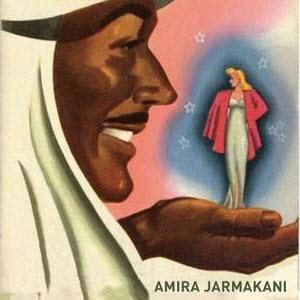An Imperialist Love Story: Desert Romances and the War on Terror


A curious figure stalks the pages of a distinct subset of mass-market romance novels, aptly called “desert romances.” Animalistic yet sensitive, dark and attractive, the desert prince or sheikh emanates manliness and raw, sexual power. In the years since September 11, 2001, the sheikh character has steadily risen in popularity in romance novels, even while depictions of Arab masculinity as backward and violent in nature have dominated the cultural landscape.
An Imperialist Love Story contributes to the broader conversation about the legacy of orientalist representations of Arabs in Western popular culture. Combining close readings of novels, discursive analysis of blogs and forums, and interviews with authors, Jarmakani explores popular investments in the war on terror by examining the collisions between fantasy and reality in desert romances. Focusing on issues of security, freedom, and liberal multiculturalism, she foregrounds the role that desire plays in contemporary formations of U.S. imperialism. Drawing on transnational feminist theory and cultural studies, An Imperialist Love Story offers a radical reinterpretation of the war on terror, demonstrating romance to be a powerful framework for understanding how it works, and how it perseveres.
Amira Jarmakani is an Associate Professor and Director of the Institute for Women's, Gender, and Sexuality Studies at Georgia State University. She received her doctorate from Emory University in the Graduate Institute of Liberal Arts (Cultural Studies) with a graduate certificate in Women’s and Gender Studies and her bachelor’s degree from Duke University in English with secondary teacher certification. She is the author of An Imperialist Love Story: Desert Romances and the War on Terror (New York University press, 2015). She also authored Imagining Arab Womanhood: The Cultural Mythology of Veils, Harems, and Belly Dancers in the U.S. (Palgrave Macmillan 2008), which won the National Women’s Studies Association Gloria E. Anzaldúa book prize. She has published articles in Signs: Journal of Women in Culture and Society, American Quarterly, and Critical Arts: A South-North Journal for Cultural and Media Studies as well as chapters in Arabs in the Americas, Arab and Arab American Feminisms, and Between the Middle East and the Americas: The Cultural Politics of Diaspora. She works in the fields of women’s, gender, and sexuality studies, Arab American studies, and cultural studies.
This event is cosponsored by Arab and Muslim American Studies, the Department of English Language and Literature, the Department of Women's Studies, and IRWG's Race, Colonialism and Sexualities Initiative.
